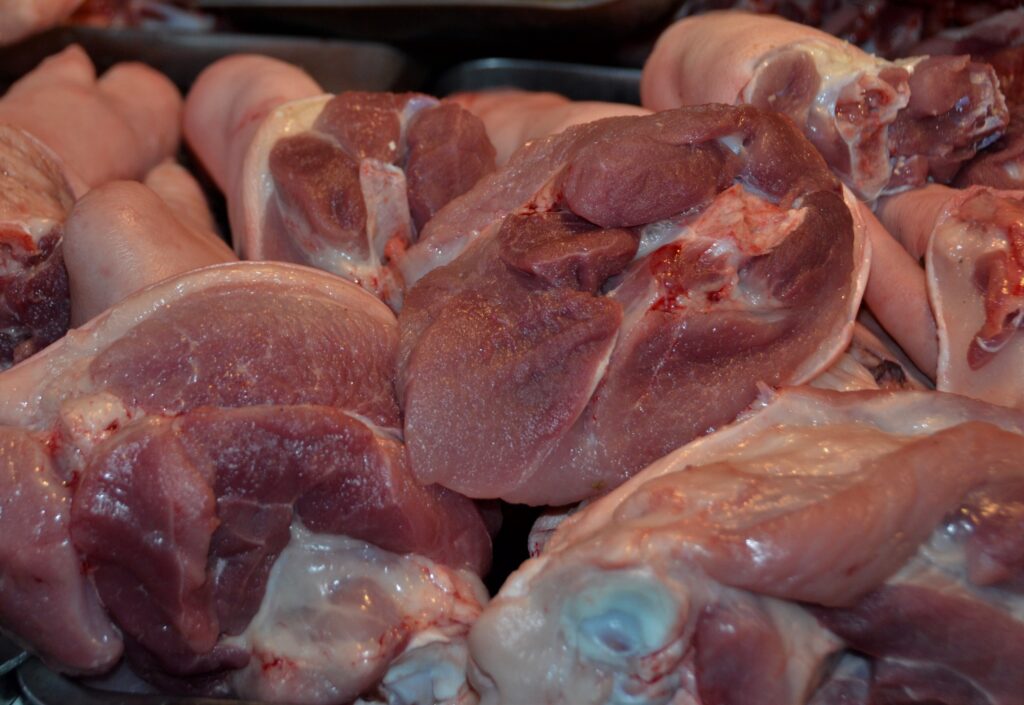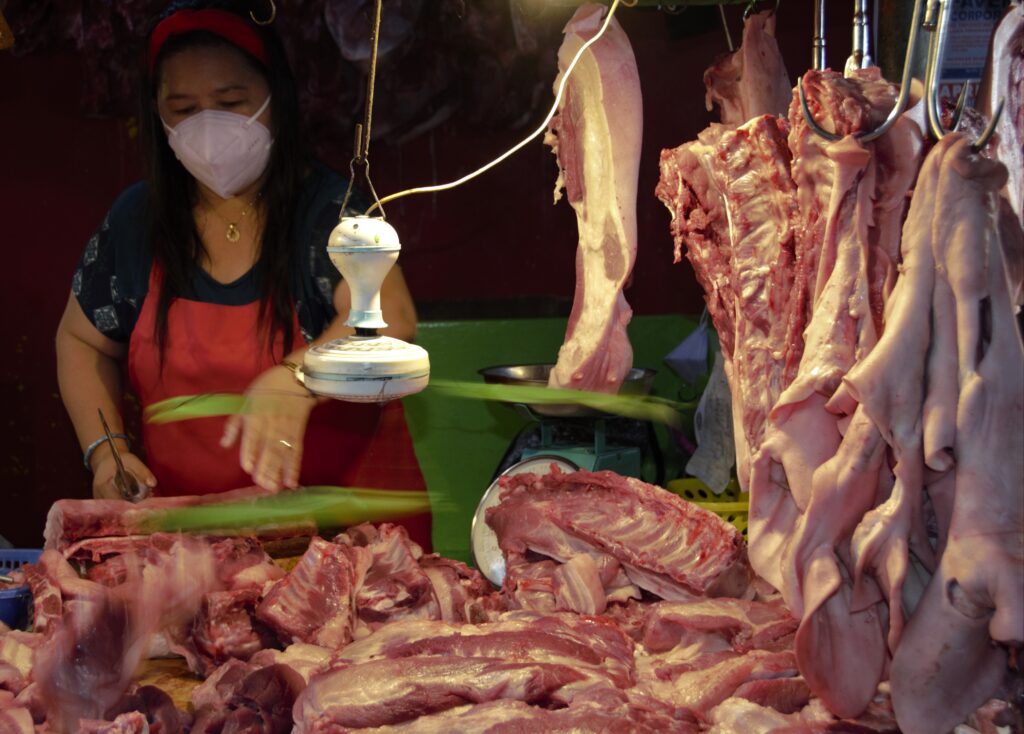Text by Maricar Bou
Photos by Henrylito D. Tacio
The tariff cut that now prevails under Executive Order (EO) 128 is totally useless as pork price is seen to remain expensive, and pork import has already skyrocketed by 150.7% to 110.419 million kilos in the first quarter of 2021 even without the tariff cut.
The United Broilers and Raisers Association (UBRA) said in a position paper filed with the Senate that inflation will not really soften just because of a tariff cut on pork imports.
“The stated purpose of EO 128 to bring down pork prices to affordable levels and dampen inflation will not happen,“ according to UBRA President Lawyer Jose Elias “Bong” Inciong.
Data from the Bureau of animal Industry (BAI) showed that even if a tariff cut has not yet been implemented, there was already a substantial increase of 150.70% or 66.376 million kilos in pork imports early this year.
This is from an import volume of 44.031 million kilos from January to March 2020 to 110.419 million kilos in the same period of 2021.
For prime cuts like bellies and pork cuts, the increase in pork imports has also been significant at 254% or from 10.719 million kilos in January to March 2020 to 38.024 million in the same period of 2021.
It is notable that the period accounted for started even prior to the onset of the effects of the Covid 19 pandemic lockdowns.
“Covid was not yet a major problem during the first quarter of 2020. These increases in importation occurred without any cuts in tariff.”
The Department of Agriculture (DA) itself set a Suggested Retail Price (SRP) for imported pork that is not really significantly cheaper than prevailing prices. The SRP for kasim is P270 per kilo, and for liempo, P350 per kilo.
“If this is the expected retail price after reducing the tariff for pork, then there is no improvement in the situation of our consumers. Since there will be no significant change in retail prices, why forego badly needed revenues by reducing tariffs on imported pork?” said Inciong.
UBRA asserted government should rather let the tariff rate at 30% in-quota and 40% out-quota.
The farmers’ group lamented that the current pork crisis is not only a result of the local hog industry’s contraction of African swine fever (ASF).
Rather, it is the natural consequence of the Philippine government’s intentional plan in the last 25 years to depend on importation and neglect its own Filipino farmers’ welfare.
“The executive branch was never serious about developing Philippine agriculture and fisheries.”
It is unfortunate that government really intended trade liberalization to keep retail prices of critical goods such as pork low.
When it joined World Trade Organization just before the turn of the century in 2000, the government merely hoped free trade will compel local producers to be competitive.
However, this is a plan bound to fail.
“Retail prices have remained expensive for consumers because of a disconnect with farm gate prices and even with imports. Worse, many consumers lost their jobs and livelihoods and became OFWs (Overseas Filipino Workers.)”
While other countries took advantage of beneficial provisions of WTO’s free-market offer, the Philippine government just opened up its industries to exposure to cheap imports.
But it neglected its own farm sector by failing to implement WTO’s provisions for domestic support, trade remedies, and Sanitary and Phytosanitary measures.
“The Philippines, unlike other government interpreted this (market access) to mean only import liberalization,” he said.
“Domestic support is about production and consumer subsidies and by extension, even export subsidies. This is an area where the Philippines has performed very poorly through the failure to implement laws like the AFMA (Agriculture and Fisheries Modernization Act).”
Neither did government implement trade remedies (anti-dumping, countervailing, safeguards measures) to protect local farmers against unfair trade.
“The government waits for the industries to suffer damage before acting,” he said.
Blatant government negligence is in its failure to put up the National Information Network (NIN) specifically mandated under AFMA’s Sections 38-45.
By such failure to establish a data system in trade and related information, the government has failed to invoke trade remedies. This while other governments built their own data to establish evidences long before an unfair trade problem arises.
Even when it comes to SPS, which should have protected the local pork industry from the entry of ASF and other diseases, it failed.
Unfortunately, even up to now, since the advent of trade liberalization more than 20 years ago, the Philippines does not yet have the first border inspection facility at the ports.
“The absence of a first border inspection area at customs is one of the most damning indication of the disinterest of government in agriculture. It is the reason ASF got inside our country.”



